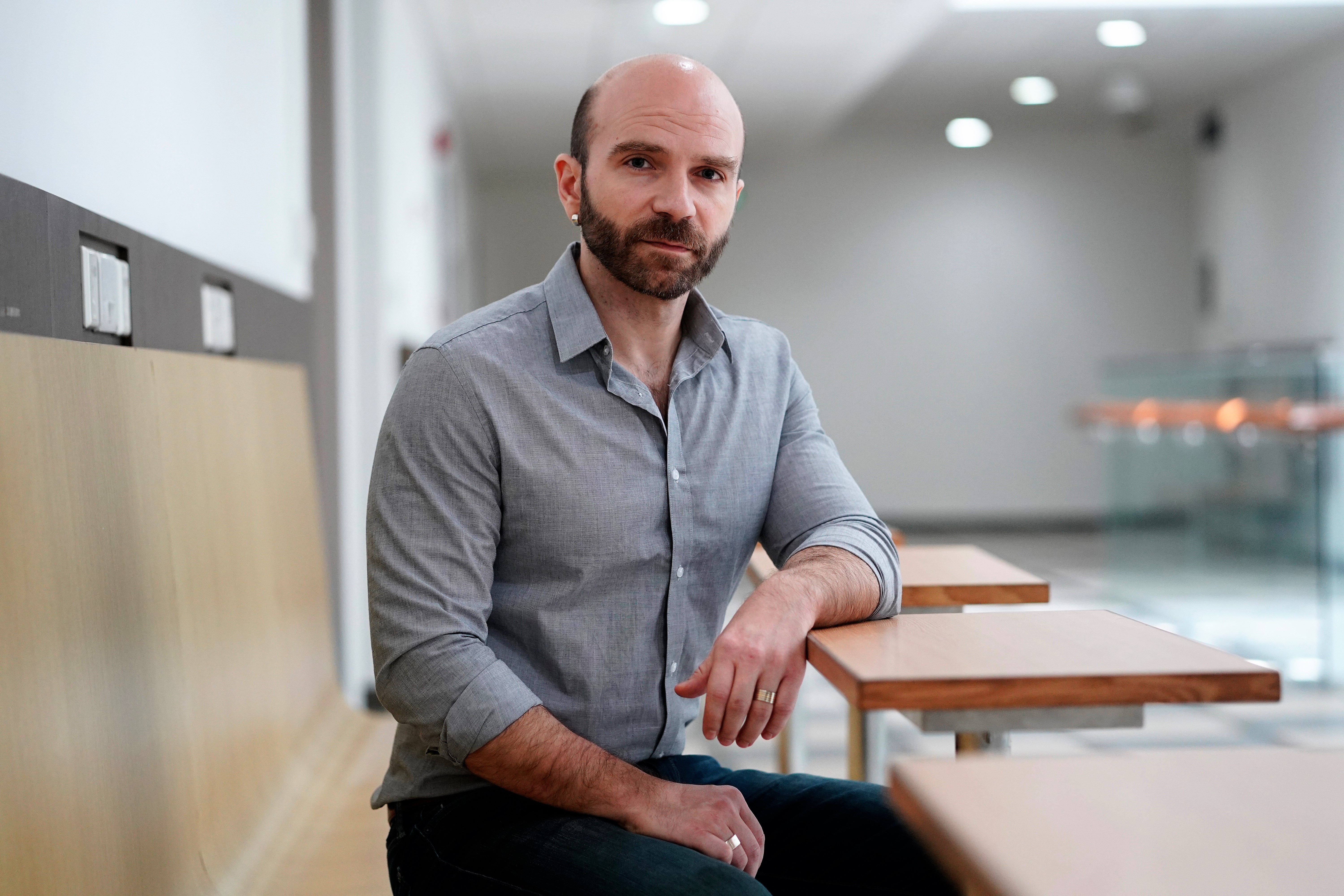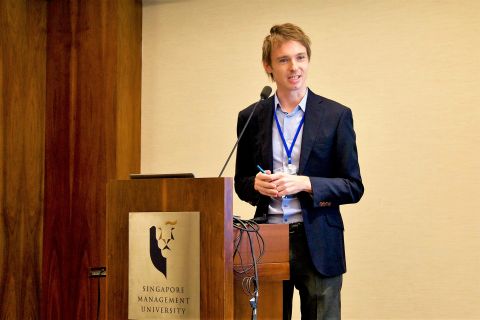
By Rebecca Tan
SMU Office of Research & Tech Transfer – The fall of the Berlin Wall in 1989 arguably symbolises the moment that capitalism became the dominant world order. Since then, capitalism has become so deeply embedded in the way the world runs that socialist countries like China and Vietnam are now among its leading proponents.
Today, it is widely assumed that the embrace of capitalism will help to advance liberal ideals of respect for private property, free exchange of goods, legal equality and so on. But for Professor Ulas Ince, an assistant professor of political science at the Singapore Management University (SMU) School of Social Sciences, a closer look at the twin births of capitalism and liberalism reveals a rather more complicated picture.
In a book published this year by Oxford University Press, Professor Ince argues that capitalism has been inherently contradictory right from its beginnings in the 17th century British Empire, generating ideological tensions between a liberal image of a peaceful commercial society and the illiberal economic policies that made global capitalist relations possible in the first place.
“For instance, the principle of private property, which is central to a liberal understanding of capitalism as a market economy, was established in the British Empire through profoundly illiberal means; namely, dispossessing the peasants at home and the colonised abroad of their resources and rights,” Professor Ince says.
Dilemmas and disavowal
Titled Colonial Capitalism and the Dilemmas of Liberalism, Professor Ince’s book analyses the works of John Locke, Edmund Burke and Edward G. Wakefield, liberal intellectuals who struggled to reconcile their imagination of Britain as a progressive and emancipatory civilisation with the harsh realities of its imperial economy.
For Locke, Burke and Wakefield, institutions like private property, free trade, and free labour were central to the ‘civilising mission’ of capitalism; and yet establishing these institutions throughout the British Empire involved the systematic use of overt extra-economic coercion, Professor Ince explains.
“I examined the political economic and philosophical writings of Locke, Burke and Wakefield to excavate how they dealt with these dilemmas, detecting the theoretical and discursive manoeuvers – what I call strategies of disavowal – that they used to draw attention away from the illiberal processes that gave rise to liberal institutions,” he says.
These strategies of disavowal, Professor Ince continues, involved presenting illiberal processes such as dispossession as merely incidental to the essentially liberal self-image of the British Empire. While liberal intellectuals recognised the coercive nature of empire-building, they rationalised them as the deeds of a few wayward individuals or corrupt imperial agents rather than an inherent property of imperial expansion and economic transformation.
Other acts of disavowal involved creative acts of mythmaking, as when Locke maintained that because Native Americans did not use money, the land that they occupied belonged to the natural common and could be appropriated without injuring them. “These are some of the fictions that were conjured up to suture the rifts in liberal theory and resolve the dilemma of the liberal self-image of the British Empire and its illiberal economic policies abroad,” Professor Ince says.
Capitalism not the opposite of imperialism
While Colonial Capitalism and the Dilemmas of Liberalism analysed the defenders of imperialism, Professor Ince’s current book project extends the framework of colonial capitalism to liberal thinkers who used the language of political economy to criticise the British Empire and European colonialism in general.
As founders of the classical political economy, Scottish Enlightenment thinkers such as David Hume and Adam Smith saw imperialism as antithetical to capitalism, counter-posing imperial domination and subjugation to the freedom and equality promised by modern commercial society. Yet, even they employed strategies of disavowal, says Professor Ince.
“While they both criticised European colonial empires for being oppressive and economically sterile, Hume and Smith equivocated on modern slavery and settler colonialism that were formative of the global commercial order that they ultimately endorsed,” Professor Ince says. “That is the limit of the anti-imperial critique mounted from a liberal economic perspective.”
In an article titled ‘Between Commerce and Empire: David Hume, Colonial Slavery and Commercial Incivility’ published in History of Political Thought, Professor Ince showed that Hume in particular dealt with the dilemma of illiberal capitalism by eliding Atlantic colonial slavery, even though he wrote extensively about ancient slavery and slavery in the East.
Similarly, Adam Smith had to make theoretical contortions that papered over the fact that the economic progress of settler colonies in North America, which for him vindicated the link between freedom and prosperity, depended on the displacement of Native Americans and the appropriation of their lands, Professor Ince adds.
Capitalism, a contradictory totality
Whether liberal ideals were mobilised to champion the British Empire or to criticise it, they shared in a broader effort to de-link capitalism from its roots in illiberal empires, Professor Ince says. These findings remain relevant to us today, where capitalism continues to incorporate various forms of extra-economic coercion, of which ‘modern slavery’ is a dramatic example.
While private property, free trade and legal equality are undoubtedly part of the institutional code of capitalism, capitalism is structurally underpinned by authoritarian relations at multiple levels, Professor Ince explains.
“The liberal ideology of capitalism marginalises or plays down the authoritarian relations that structure the background conditions of capitalism and imagine capitalism as an essentially liberal formation,” he says. “I argue, however, that it is neither purely authoritarian nor purely liberal; it is a contradictory totality. Freedom and coercion under capitalism have always been very unevenly distributed, both socially and geographically, along axes of race, gender, and legal status, among others.”
Based on a critical history of capitalism, Professor Ince’s work calls for the expansion of the boundaries of political theory into questions that are typically construed as socioeconomic, such as dispossession, exploitation and redistribution.
“Doing so, however, also entails pushing the conventions of political theory as a disciplinary subfield and engaging in a transdisciplinary conversation with historical sociology, human geography, critical legal theory and environmental studies,” he concludes.
Back to Research@SMU Issue 57
See More News
Want to see more of SMU Research?
Sign up for Research@SMU e-newslettter to know more about our research and research-related events!
If you would like to remove yourself from all our mailing list, please visit https://eservices.smu.edu.sg/internet/DNC/Default.aspx

